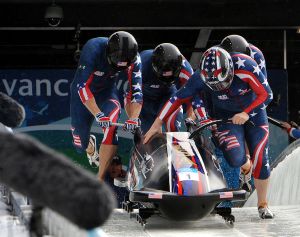Are you a die-hard leader or a fair-weather leader? Part 2
Earlier in the week we discussed  the four things that die-hard baseball fans value more than winning: Pure Entertainment, Authenticity, Fan Bonding, and History and Tradition.
the four things that die-hard baseball fans value more than winning: Pure Entertainment, Authenticity, Fan Bonding, and History and Tradition.
What can we learn about being a die-hard leader from loyal baseball fans?
Pure Entertainment – The die-hard leader is excited about the process it takes to win, not just winning.
Authenticity – The die-hard leader is committed to what is best for the team.
Fan Bonding – The die-hard leader has earned the respect and admiration of their team through demonstrations of character.
History and Tradition – The die-hard leader always makes decisions based on a foundation of core values.
Hall of fame pitcher Bob Feller said, “Every day is a new opportunity. You can build on yesterday’s success or put its failures behind and start over again. That’s the way life is, with a new game every day…”
“The team with a die-hard leader will not only know how to be successful, but to stay successful.” – Denis McLaughlin










